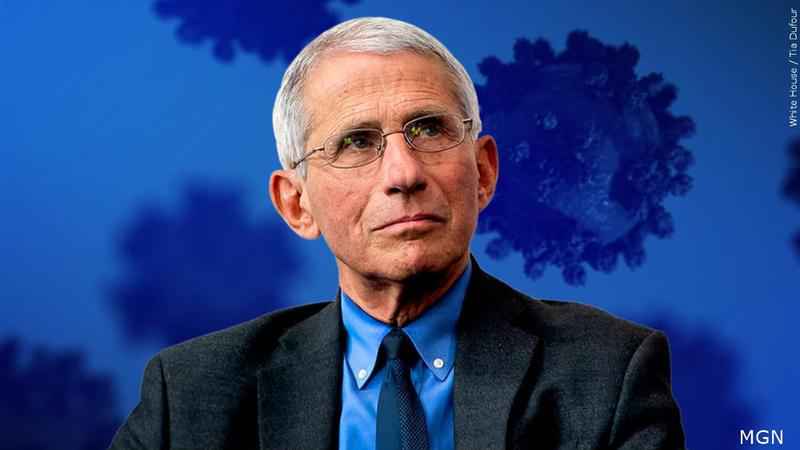Fauci: Covid may not end, hopes to find normalcy
[anvplayer video=”5085716″ station=”998130″]
White House officials say hopefully we will get to where COVID-19 is acceptable and "it doesn’t disrupt our capability to function in society in a relatively normal way."
Dr. Anthony Fauci, the top White House medical adviser says, when asked what an acceptable situation is regarding SARS Cov-2 and COVID-19 said, "the important point to make is that we are not there right now."
In a White House Covid briefing Wednesday Fauci said: "We want to make it low enough so that it doesn’t disrupt our capability to function in society in a relatively normal way. We do that with other respiratory viruses."
Adding, "that’s where we want to be, and I believe that we will get there."
Fauci said where we want to be, "is a level of control that does not disrupt us in society, does not dominate our lives."

Dr. Anthony Fauci says health officials want to make COVID-19 levels low enough so that it "doesn't disrupt our capability to function in society in a relatively normal way."[White House / Tia Dufour]
In the U.S., cases have crested and are dropping rapidly, following a pattern seen in Britain and South Africa, with researchers projecting a period of low spread in many countries by the end of March.
Though U.S. deaths — now at 2,000 each day — are still rising, new hospital admissions have started to fall, and a drop in deaths is expected to follow.
The encouraging trends after two years of coronavirus misery have brought a noticeably hopeful tone from health experts.
Rosy predictions have crumbled before, but this time they are backed by what could be called omicron’s silver lining: The highly contagious variant will leave behind extremely high levels of immunity.
"Our tools are working even in the face of a highly transmissible variant. And we continue to move toward a time when COVID won’t disrupt our daily lives, a time when COVID is no longer a crisis, but rather something we protect against and treat," said White House COVID-19 Response Coordinator Jeff Zients.
Meanwhile, the World Health Organization says there were 21 million new coronavirus cases reported globally last week.
That’s the highest weekly number of COVID-19 cases recorded since the pandemic began.
The number of deaths was largely unchanged, at more than 50,000. In its weekly assessment of the pandemic, the U.N. health agency says the number of new coronavirus infections rose by 5% and that the rate of increase appears to be slowing; only half of regions reported an increase in COVID-19.
Earlier this month, the previous highest number of cases – 9.5 million – was recorded amid a 71% spike from the week before, as the hugely contagious omicron variant swept the world.